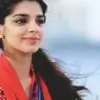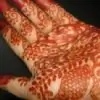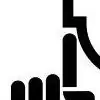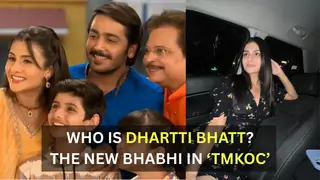Do modern Pakistani TV romances fall short of classics like Dhoop Kinarey?

"Mujhe aap ki bahut parvah hai."
That phrase from iconic 80s TV drama Dhoop Kinarey had three generations of women swooning with the younger lot making mental notes on romance. Year's later, Dhoop Kinarey's romantic duo Dr Ahmer (Rahat Kazmi) and fun loving Dr Zoya (Marina Khan) are still one of the most famous romantic couples to grace our screens.
Throughout the 80's and 90's we were swept off our feet by some very likeable couples and romantic screenplays in drama serials such as Ankahi, Tanhaiyan, Bandhan and many more. However, the scope for romance has slowly become more and more limited as male protagonists have become villains rather than heroes and our heroines have lost agency and sit weeping in corners, waiting to be rescued.

Dr Zoya (L) and Dr Ahmer (R) in Dhoop Kinare
In the past, marriage and a happy life were once the ending to a story
of self-realisation, now the wedding vows mark the beginning of a
torturous process of misunderstandings with betrayal lurking around
every corner.
Today's hero is a far cry from Dr Ahmer, he does not waste time judging
a woman's character or personality. Clearly the path to his heart is
through his stomach as his main concern is who makes good /parathas/ and
the roundest /koftas/.
Today's heroine has also changed: she is weighed down with domestic
responsibilities, attacked on all sides and in constant fear of
desertion, while carefree and happy are words reserved for the
villainous cousin or secret girlfriend. The wonderfully laid back,
working woman Aani /Khala/ (Badar Khalil) of /Tanhaiyaan/ would never
qualify for a /rishta/ in today's onscreen climate; her outspoken ways
and cooking methods (put the ingredients in a pot and read a book till
cooked) would rule her out as wife material immediately.
------------------------------------------------------------------------
The scope for romance has slowly become more and more limited as male protagonists have become villains rather than heroes and our heroines have lost agency and sit weeping in corners, waiting to be rescued
Glancing through a list of the most popular dramas of the last few years
serials such as /Meri Zaat Zara Benishan/, /Khuda Aur Mohabbat/, /Daam/,
/Humsafar/, /Dastaan/, /Zindagi Gulzar Hai/, /Aun Zara/ and more
recently /Pyarey Afzal/ stand out as memorable romances. So, what is the
modern perspective on romance?
We asked a few of the talented writers and directors behind some of
these serials what magic pixie dust they sprinkle to make such scenes work:
*Lights, camera, action: the beginning of a romance*
According to the talented director of award winning serial /Dastaan/,
Haissem Hussain: "Showing romance on screen is all in the timing. The
measuring of looks, space, texture, light, the silence, the right words
at the right time. All measured and timed to perfection." He adds, "It
is the creating of tension and then the sudden release from it."
One of the most unforgettable scenes from /Dastaan/ shows Hassan (Fawad
Khan) and Bano (Sanam Baloch) searching the rooftops to catch a glimpse
of one another. The beautiful play of light and shadow dancing across
the actors faces and in the glow of the lanterns framed by the soft
darkness of a moonlit night make this a classic.

Bano and Hasan sharing a moment in 'Daastan'.
What makes it epic is that it isn't just a romance about lovers who are
meant to be together but they are torn apart by events beyond anyone's
control (in this case Partition). The viewer becomes part of their
journey and though we want them to find each other, we also see how they
have changed.
Samira Fazal who wrote the screenplay for /Dastaan/ says that to write a
romance, "a writer has to feel it, and write what comes from the heart.
The use of subtle gestures with eyes with less words and no physical
touching - because that would ruin it."
*Mean what you don't say " how our dramas work to show love without action*
The absence of the physical is often replaced by that other device "
banter.
Dialogue has a strong hand in building the chemistry and relationship
between two characters. The back and forth snappy dialogue between
couples holds a wealth of implicit meaning that lays the foundation of
their relationship. Even in /Dhoop Kinarey/ Dr. Irfan's (Sajid Hassan)
shouted-out proposal to Anji (Kehkishan Awan) is ridiculously romantic.
In /Kuch Pyar Ka Pagalpan/, which became a cult classic, it was the
witty exchange between the four protagonists but especially the
chemistry between Shamraiz (Mikaal Zulfikar) and Kiran (Sanam Baloch)
that had the audiences guessing the outcome till the very end.

A scene from Tanhaiyan.
Though sometimes, actions speak louder than words and give us a tangible
insight into the characters feelings. It is these actions that we
remember as romantic moments. In /Dhoop Kinarey/, when Dr. Ahmer returns
Dr. Zoya's earrings we realize how he really feels despite the stern
talking to he gave her the night before. In /Kuch Pyar Ka Pagalpan/ when
Shamraiz spends the whole night waiting up for Kiran to return safely it
speaks volumes about his concern for her. In /Ankahi/, Timmi gives up
his true love so that she may have a better life, all bring a lump to
our throats and get us teary-eyed.
------------------------------------------------------------------------
Subtext is key to how romance plays out in Pakistani dramas. In
the absence of physical proximity, the hints of ideas are
usually what charges the relationships and the audience
interprets what was not said
------------------------------------------------------------------------
Poet, writer, director, and (dare we say) renaissance man, Sarmad Sehbai
describes romance more earthily: "The way a woman moves says it all and
of course, the eyes, which are the only door. It is veiled erotica, the
way the actors are shot and directed."
His much anticipated film /Mah-e-Meer/ is an intense, passionately
romantic movie about a modern day poet with a deep psychological
connection with the Urdu poet Mir Taqi Mir.

A scene from Mah-e-Meer
In /Mah-e-Meer/ trailers too we see lead actress Iman Ali as the
embodiment of that veiled eroticism in her role as a courtesan. Sehbai
acknowledges that the /tawaif/ embodied the cultural metaphor and with
the downfall of the Mughal Empire. "There was a loss of beauty and
pleasure embodied in courtesan culture." he says.
However, it is not only veiled eroticism but the hidden subtext that
builds the romantic tension as well. From half-acknowledged feelings to
never quite spoken but definitely non-platonic relationships, subtext is
also key to how romance plays out in Pakistani dramas. In the absence of
physical proximity, the hints of ideas are usually what charges the
relationships and the audience interprets what was not said.
*Simplicity is key: the use of symbols*
Romance is not limited to purely to passion. Often times simplicity is
just more powerful.
Author Faiza Iftikhar has written her fair share of romantic scenes, and
though her recent romantic comedy /Aun Zara/ captured hearts all over
the world she says her favourite romantic scene comes from /Aik Nayee
Cindrella/: "When Meesha tells Roman that Mayer, (his rival) has
proposed to her, they start looking at each other and only the
expressions in their eyes explain their feelings for one another.
Romantic dialogues should be simple and touching," she explains. She
follows the Jane Austen school of thought encapsulated by Mr Knightley's
famous declaration to Emma "If I loved you less I might be able to talk
about it more."
When contemplating classic romance, no discussion could be complete
without the queen of contemporary romantic writing, Farhat Ishtiaq. Her
mega hit serial /Humsafar/ became a phenomenon, propelling its lead
actors into Bollywood and bringing much needed confidence back to
Pakistani drama industry beset by the success of Indian and Turkish
serials.
"You have to be a romantic at heart, hopelessly romantic, have love for
nature, be emotional, oversensitive ...at least this is who I am. I cry,
I laugh with my characters and find romance in the most unusual
situations even in everyday life" she muses. That very basic connection
to nature is often a conduit for romance in the culture of the
subcontinent using the summer rain as a metaphor for desire seeking an
escape.

Famous couple of Ashar and Khirad in Humsafar
"Rain inspires me a lot," confesses Ishtiaq adding playfully that she
can watch it for hours without ever getting bored .The rain scene so
beautifully picturised by director Sarmad Khoosat in /Humsafar/
illustrates this perfectly. Khirad's naivete and her sheer uninhibited
joy as she dances in the rain contrast perfectly with her husband
Asher's distant, more guarded position. Ishtiaq's latest project
/Diyar-e-Dil <http://www.dawn.com/news/1170348>/ is another romantic
story which promises a more playful, younger romance than her previous
stories.
Khalil Ur Rehman Qamar is renowned for his deeply romantic writing which
brings the much neglected male protagonists to the fore. His claim
<http://www.dawn.com/news/1142909/khalil-ur-rehman-qamar-on-killing-afzal-and-sadqay-tumhare>
that " Mohabbat appne gunehgaroon ko kabhi maaf nahin karta" (love never
forgives her transgressors) is apparent in his work.
------------------------------------------------------------------------
Today, where every second drama is about second wives, third
wives or unfaithful men, simple devotion is just as romantic as
any flowery speech
------------------------------------------------------------------------
Faith, almost blind faith, blended with a fascination for loss and
tragedy are recurring themes in his writing. His hugely popular *Pyaray
Afzal and the autobiographical Sadkey Tumhare
are bittersweet romances with unhappy
endings.

Farah and Afzal in 'Pyaray Afzal' were liked by the fans too
Today, where every second drama is about second wives, third wives or
unfaithful men, simple devotion is just as romantic as any flowery
speech. In /Pyaray Afzal/, the hero Afzal accepts Farah's rejection but
her hold on him and his own dedication to that dream of love never ends.
Similarly in Humsafar, Asher's sitting alone reading a newspaper a few
years after Khirad has left makes it clear that he has not conveniently
married Sara. This may have been more romantic than all the other more
contrived scenes we're shown.
------------------------------------------------------------------------
Director Mehreen Jabbar suggests that romance is "all about the
things that are unsaid and the silent moments that can create
the best romantic scenes."
------------------------------------------------------------------------
Of Khalil sahib's current drama on-air, /Mera Naam Yousuf Hai
<http://www.dawn.com/news/1174283/review-mera-naam-yousuf-hai-is-a-one-sided-love-story-so-far>,/
director Mehreen Jabbar suggests that romance is "all about the things
that are unsaid and the silent moments that can create the best romantic
scenes." This exemplifies another fundamental of subcontinental romance:
the unconscious language of romance, where lovers interpret each other's
emotions without speaking.
This subtlety is perfectly translated in Jabbar's earlier drama /Daam/,
with the 'blink and you'll miss it' quick change of scenes as Junaid
insists that Zara wear another /gajra/ at his sister's engagement,
leaving a quiet glow on Zara's face and the viewers hearts.
This works under the expert guidance of a good director like Mehreen
Jabbar, who knows how to edit and shoot actors' expressions to show that
unspoken rapport. In less able hands it can be confusing. /Numm/ is a
recent example of an emotionally charged story with great actors whose
silences were very difficult to interpret.
*Unconventional romances: we'd love to see more*
Pakistani dramas have never been shy of presenting unconventional
romances. Sometimes couples who don't take center stage and more
unorthodox romances are definitely a breath of fresh air. The older
couple Nusrat (Shamim Hilali) and Mutmain (Syed Mohammed Ahmed) in /Coke
Kahani/, Phopoo (Sabeen Hisbani) and Colonel sahib (Adnan Jaffer) from
/Aun Zara/ were adorable.
Here humour was the key, their easy, unqualified acceptance of each
other made their romance just as meaningful as any star crossed lovers.
More recently the mature relationships
in Jackson Heights with Bhatti
/sahib's/ (Nouman Ijaz) and Salma (Ameena Sheikh) worked because you
could see the growth that they brought in each other. The beginnings of
the relationship between a younger man Jamshed (Adeel Husain) wooing the
older Michele (Marina Khan) too was also well done. In each case the
screen chemistry was palpable.

Aun and Zara in 'Aun Zara'.
The idea that love can heal the deepest wounds is often behind some of the less traditional romances portrayed on our small screens. Writer Zanjabeel Asim Shah's romances offer surprising combinations. Her recent take on Beauty and the Beast, drama *Bashar Momin,* carried this theme of redemption telling the story of a cruel, psychologically damaged criminal who is transformed by unconditional love.
Similar themes of redemption flow through her stories like Aik Nazar Meri Taraf where two victims of their respective spouses' adultery and infidelity find love and hope in each other. In another story, Saat Pardon Main, she shows a transgender man finding himself through the love of a girl betrayed by another man.

Shah's adaptation of the classic movie /Anjuman/ also had more romance
than the earthier original. Anjuman is no innocent girl but a courtesan
used to controlling and manipulating men till she meets a man she
actually loves. The wonderful scene picturised by director Yasir Nawaz,
where Anjuman asks her disdainful captive Asif /"kissi nay aap ki nazar
uttari hai?"/ is hard to forget.
To wrap up, here is a list of our favourite romantic scenes from
various TV dramas:*
*1) /Aanch/:* When the hero declares his absolute faith in his wife's
character despite their impending divorce
*2) /Anjuman telefilm/:* When Anjuman asks Asif to leave because of her
promise to his bhabi
*3) /Aun-Zara/:* Aun and Zara brushing each other's hair, there is a
great deal of implied intimacy involved in such a simple act
*4) /Bandhan/:* The "sort of" proposal when the hero played by Nouman
Masood keeps asking Nadia Khan's character "Haa, Ya Naa"
*5) /Dastaan/:* When Hassan proposes to Bano: /"Mujh sey shadi karogi?"/
*6) /Dhoop Kinarey/:* The last scene which has all the elements of
creating romantic tension and Dr Zoya and Dr Ahmer end up at the same
place and he holds her hand and says he won't let go. Le sigh.
*7) /Humsafar/:* Asher takes his reluctant bride Khirad to eat ice cream
after a party and notices she is wearing the bracelets he gave her
*8) /Pyaray Afzal/:* When Afzal says he knows he is not worthy of Farah
but he still has the right to love her
*9) /Tanhaiyaan/:* The last scene with Zara and Zain's voice taking
center stage over the chaos of the party in the background and their
silence and thoughts (literally) say it all
*10) /Zindagi Gulzar Hai/:* Kashaf goes to sleep troubled and alone,
only to wake up and find her husband Zaroon has taken the night flight
to be with her " perfect.

Romance never goes out of style, no matter how practical or rational we
try to be, a simple glance, a haunting melody and a fluttering heart
will always be in fashion.
------------------------------------------------------------------------
Article Link .. http://www.dawn.com/news/1195486/do-modern-pakistani-tv-romances-fall-short-of-classics-like-dhoop-kinarey
Kashaf Zaroon .. pic added by me 😳





























